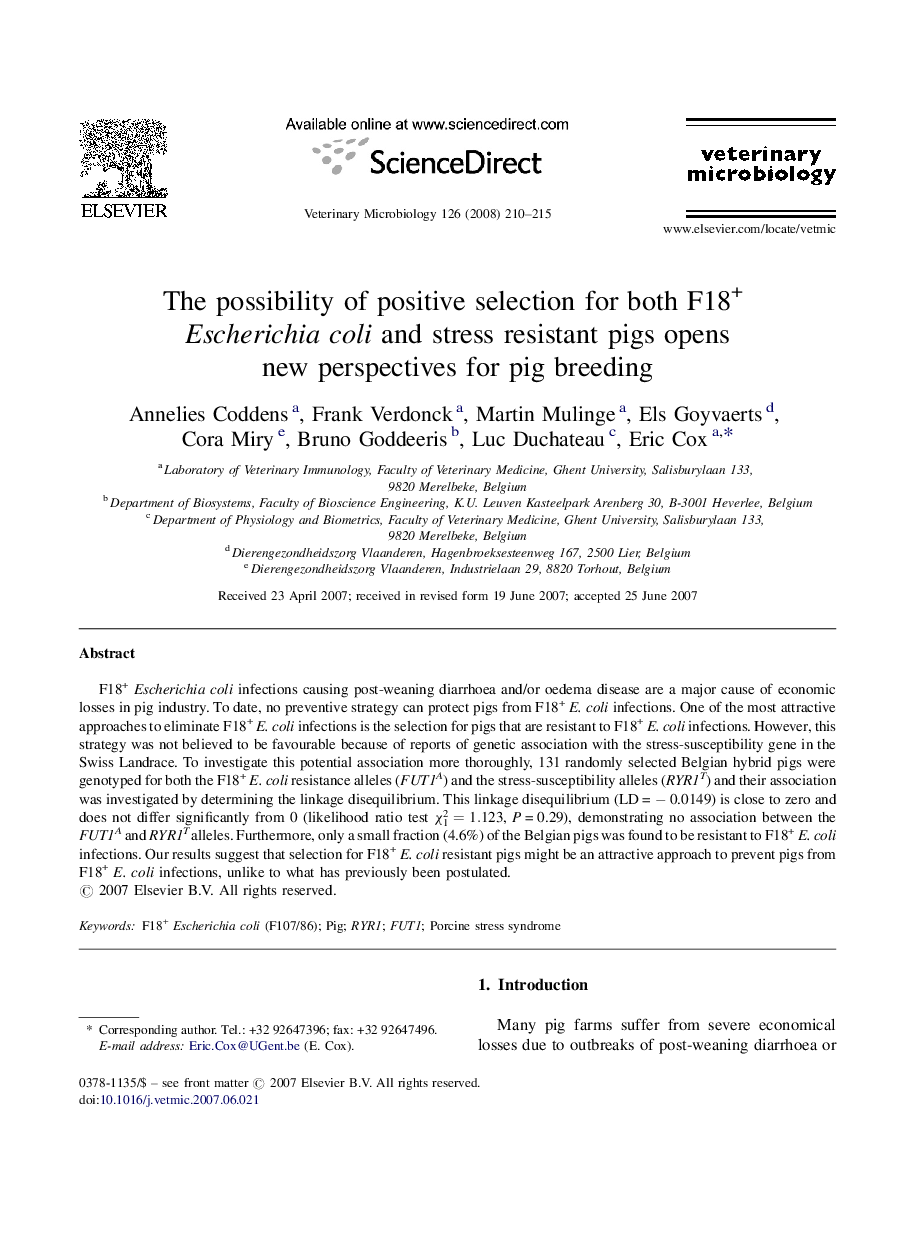| Article ID | Journal | Published Year | Pages | File Type |
|---|---|---|---|---|
| 2469036 | Veterinary Microbiology | 2008 | 6 Pages |
F18+Escherichia coli infections causing post-weaning diarrhoea and/or oedema disease are a major cause of economic losses in pig industry. To date, no preventive strategy can protect pigs from F18+E. coli infections. One of the most attractive approaches to eliminate F18+E. coli infections is the selection for pigs that are resistant to F18+E. coli infections. However, this strategy was not believed to be favourable because of reports of genetic association with the stress-susceptibility gene in the Swiss Landrace. To investigate this potential association more thoroughly, 131 randomly selected Belgian hybrid pigs were genotyped for both the F18+E. coli resistance alleles (FUT1A) and the stress-susceptibility alleles (RYR1T) and their association was investigated by determining the linkage disequilibrium. This linkage disequilibrium (LD = − 0.0149) is close to zero and does not differ significantly from 0 (likelihood ratio test χ12=1.123, P = 0.29), demonstrating no association between the FUT1A and RYR1T alleles. Furthermore, only a small fraction (4.6%) of the Belgian pigs was found to be resistant to F18+E. coli infections. Our results suggest that selection for F18+E. coli resistant pigs might be an attractive approach to prevent pigs from F18+E. coli infections, unlike to what has previously been postulated.
